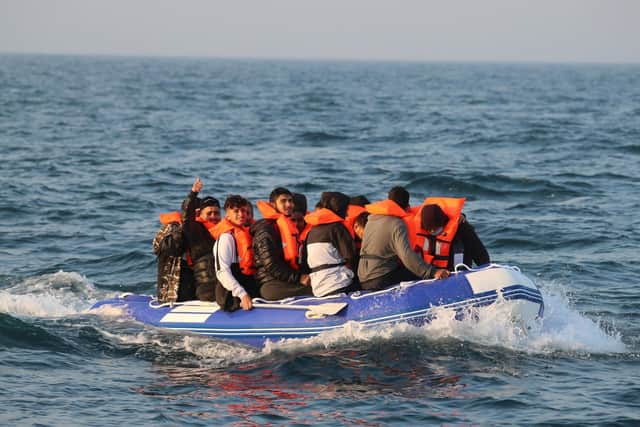New record immigration figures show how essential migrants are to UK society and economy - Ian Swanson
and live on Freeview channel 276
Immigration is likely to be a hot topic when it comes to the next general election, with the Tories making much of "stopping the boats" and their Rwanda scheme to offshore Britain's responsibility for asylum seekers, currently blocked by a Supreme Court ruling.
Former Home Secretary Suella Braverman famously said it was her dream to see a plane take off before Christmas, flying asylum seekers to the East African country, from where they would never be allowed to return to Britain. And Rishi Sunak would be delighted if even a handful of migrants were flown to Rwanda before the election, just to prove a point.
Advertisement
Hide AdAdvertisement
Hide AdBut if not, many in the party – and perhaps Mr Sunak himself – will simply use the frustrating of their plans by the courts as an argument for leaving the European Convention on Human Rights,


However, the bigger picture on immigration has been highlighted in the past few days with revised figures from the Office for National Statistics (ONS), increasing the estimate of net migration to the UK for 2022 from 606,000 to a record 745,000. Many people who voted for Brexit did so in the belief it would somehow reduce immigration, but while there are far fewer EU citizens coming to the UK, migration from other parts of the world has increased. The Tories fought the 2019 general election – when immigration was 229,000 – promising to reduce the overall figure, but instead it has more than trebled.
But that’s not because of desperate people clambering aboard flimsy rubber boats to make the dangerous journey across the Channel. “The boats” account for a tiny proportion of people coming from other countries, hoping to make new lives in the UK.
Nor is the big increase in migration due to the “scroungers” and “benefit tourists” of populist mythology. In fact, the vast majority of people coming to the UK are doing so to study –thus bringing substantial income for UK universities – or work in sectors like health and social care, which are chronically short of staff. In other words, migrants are essential to our society and economy.
Advertisement
Hide AdAdvertisement
Hide AdAnd nowhere is that more true than in Scotland, where an ageing population and low birth rate have for a long time meant we need more migrants, not fewer. But immigration policy for the whole of the UK is reserved to Westminster, so Scotland has little influence on who is allowed to come here or on what basis.
The UK Government is reportedly now considering new restrictions on immigration, including an increase in the minimum salary overseas workers must be paid, a cap on the number of NHS and social care workers hired from abroad, limiting foreign health and care workers to bringing one relative each to the UK or possibly banning them from bringing dependants altogether.
Such measures might well deter people from moving here and so reduce net migration as the government wants. But it also risks leaving crucial gaps in the UK workforce, deepening the crisis which already exists in health and social care and making it even harder to bring down the unacceptably long waiting times in the NHS.
The advice to Rushi Sunak and his colleagues on immigration should be: “Be careful what you wish for.”